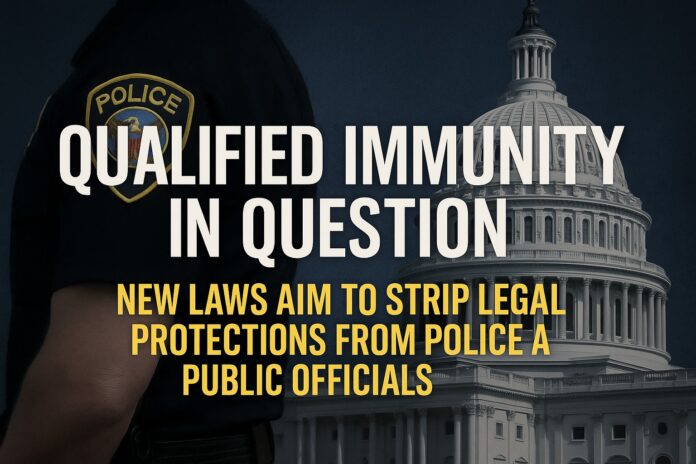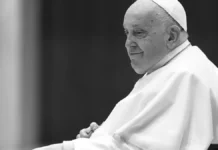
Across the United States, momentum is shifting. For decades, qualified immunity stood like armor around public officials, especially law enforcement. Today, that armor shows cracks. Ohio is at the forefront. Activists there are pushing forward a constitutional amendment that would eliminate qualified immunity statewide. If passed, it would open the door to lawsuits against government workers once considered untouchable in civil court.
Citizens no longer accept a system where government employees operate without personal consequence. In Ohio alone, emergency vehicles were involved in thousands of at-fault crashes over the last five years. Victims watched bills pile up. They paid for tow trucks. They lost their cars. Yet the officers responsible walked away without legal responsibility. That was not an accident. It was the law. Qualified immunity protected them.
One Crash, No Justice
In Highland Square, Akron, four vehicles were totaled after a police cruiser plowed through a quiet street. The officer behind the wheel broke department policy. Internal investigations confirmed fault. Still, no court case followed. Steven Rockich, one of the victims, paid more than $600 to tow his wrecked vehicle. The damage exceeded $5,000. Insurance would not cover the loss. No city reimbursement followed. The reason: full immunity.
“They told me flat out—they were not going to pay a dime,” Rockich said. “The cop gets a slap on the wrist. I lose everything.”
The public is now responding. Marije Rivers leads the Ohio Coalition to End Qualified Immunity. She holds a stack of petitions every day and collects signatures from furious residents who feel robbed of their rights. She needs about 415,000 signatures by early July. She says she will get them.
The Legal Landscape Is Changing
What was once dismissed as political theater now holds real weight. A federal judge forced Ohio Attorney General Dave Yost to approve petition language after state resistance. With that order, the ballot process began. If voters pass the measure in November, Ohio would become the first state to eliminate qualified immunity by constitutional amendment.
Supporters say the law unfairly denies victims justice. Critics, led by police unions and state officials, warn of a future where lawsuits swamp local governments and discourage careers in public service.
“If you end qualified immunity, cops will walk away,” said Jay McDonald, President of the Ohio Fraternal Order of Police. “They will not risk their house, their savings, their family security to stop a shoplifter or break up a fight in a parking lot.”
He went further. “This does not stop with police. It touches social workers. Teachers. School staff. That lunch lady at your child’s school? She could get sued. That’s where this is going.”
A Political Line in the Sand
The debate runs deeper than legal procedure. It touches everything. What is the role of the state? Who gets held accountable? What does real justice look like?
Ohio is not alone. Campaigns in California and New York are also underway. Federal lawmakers have proposed similar repeals in Congress, but none made it to the floor. State-level action may be the only path left.
Public trust is fading. Qualified immunity was meant to protect honest mistakes. Instead, it now shields clear violations. Courts demand proof of a constitutional breach—a bar so high, few claims survive. Without direct video, unredacted reports, and ironclad evidence, most victims never get past the courthouse door.
I was honored to speak today at Accountability Now Ohio’s press conference. We presented the wording for their constitutional amendment to end qualified immunity in Ohio. Video of my speech will drop later today. pic.twitter.com/fh6no1OMVo
— Spike Cohen (@RealSpikeCohen) May 4, 2021
A Tipping Point for American Accountability
What happens in Ohio will not stay in Ohio. The vote set for November carries national weight. If passed, it will signal that the public is finished waiting, finished trusting systems that protect power over people. No badge, title, or job description will be enough to dodge basic accountability. That idea once sat on the political fringe. Now it stands at the center of a state ballot.
Every broken car. Every unpaid bill. Every unanswered call for justice has built to this moment.
The shield is cracking. And for the first time in decades, the people might decide who deserves protection—and who deserves to pay.
If you want more fresh stories, stay with us at HurfPost Brasil.
















